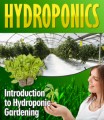Salespage Snapshot:

>>> Click Here To View Full Sales Page…
Table of Contents
INTRODUCTION
COMPOST: ENVIRONMENT RECYCLING
COMPOSTING BASICS
WHAT MAKES COMPOSTING WORK
THE KEYS TO GREAT COMPOSTING
THE THREE Rs OF COMPOSTING
HOW TO GET STARTED WITH COMPOSTING
CARBON AND NITROGEN BALANCE
COMPOSTING RECIPES
FIXING COMPOSTING PROBLEMS
HOW TO USE YOUR NEW COMPOST
QUICK TIPS FOR COMPOSTING
A LOOK AT COMPOSTING BINS
THE POWER OF WORM COMPOSTING
LEARNING ABOUT GRASSCYCLING
COMPOST TOILETS
TIPS FOR BUILDING YOUR OWN COMPOSTER
CONCLUSION
Sample Content Preview
COMPOST: ENVIRONMENT RECYCLING
Have you ever heard of compost? Most people have, but probably do not fully understand this very interesting and beneficial recycling method. In fact, many people do not give composting a second thought because they consider it “inconvenient” or “messy”. Composting has been around for a very long time and proves a beneficial way to reuse materials that would otherwise end up in the garbage pail. With today’s technology, composting does not have to take up a lot of time and it can be quite useful to you in a variety of ways.
Understanding Compost
In order to fully appreciate composting, you have to understand what composting is and what it is not. Composting is not a method to recycle everything you have in your home. You cannot compost anything—to get its full benefits, you have to know what you can and cannot compost. Composting is not difficult. Sure, just like anything else you are learning for the first time, it does take some time and practice, but it is not hard to do. Composting does not take up a lot of room. Some people choose to have large composting bins on site, but you do not have to do this to have success at composting. Last of all, composting is not expensive. If you do choose to start composting, there will be initial costs of getting all of your composting materials, but after that, your compost bin will pretty much be maintenance free if you learn how to do it properly.
Getting to Know Compost
By definition, compost is simply the end product of decompensated organic matter. This may include any type of organic matter such as kitchen scraps and leftovers, garden waste, leaves, yard clippings, manure and even sawdust and straw. Composting happens naturally and you can harness this natural breakdown cycle and use it to your advantage. Anything that is considered organic will break down without the aid of a compost bin. It just takes time. When you compost in your home or in your backyard, you are giving nature a hand and speeding up this process. What you do with the end results is up to you, but many people choose to use their compost for their gardens. While compost is not all that high in essential nutrients, it is considered a soil conditioner and not a fertilizer. This can really help your soil if you garden because it improves the soil structure and can also help attract beneficial insects to your garden or flowerbeds.
Now that you know a little about composting, it is time to delve deeper into this wonderful way to recycle and reuse.
Other Details- 30 Articles (TXT)
- 2 Ebook (PDF, RTF), 41 Pages
- 7 Part Autoresponder Email Messages (TXT)
- 1 Salespage (HTML, RTF)
- 3 Ecovers (JPG)
- File Size: 1,121 KB














